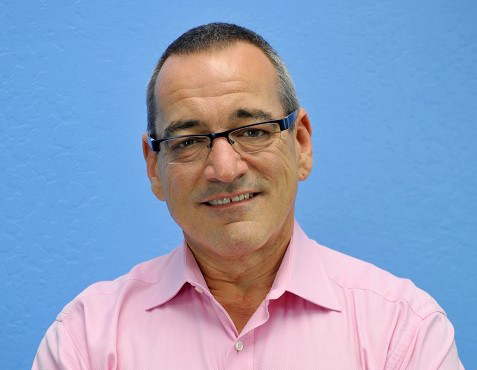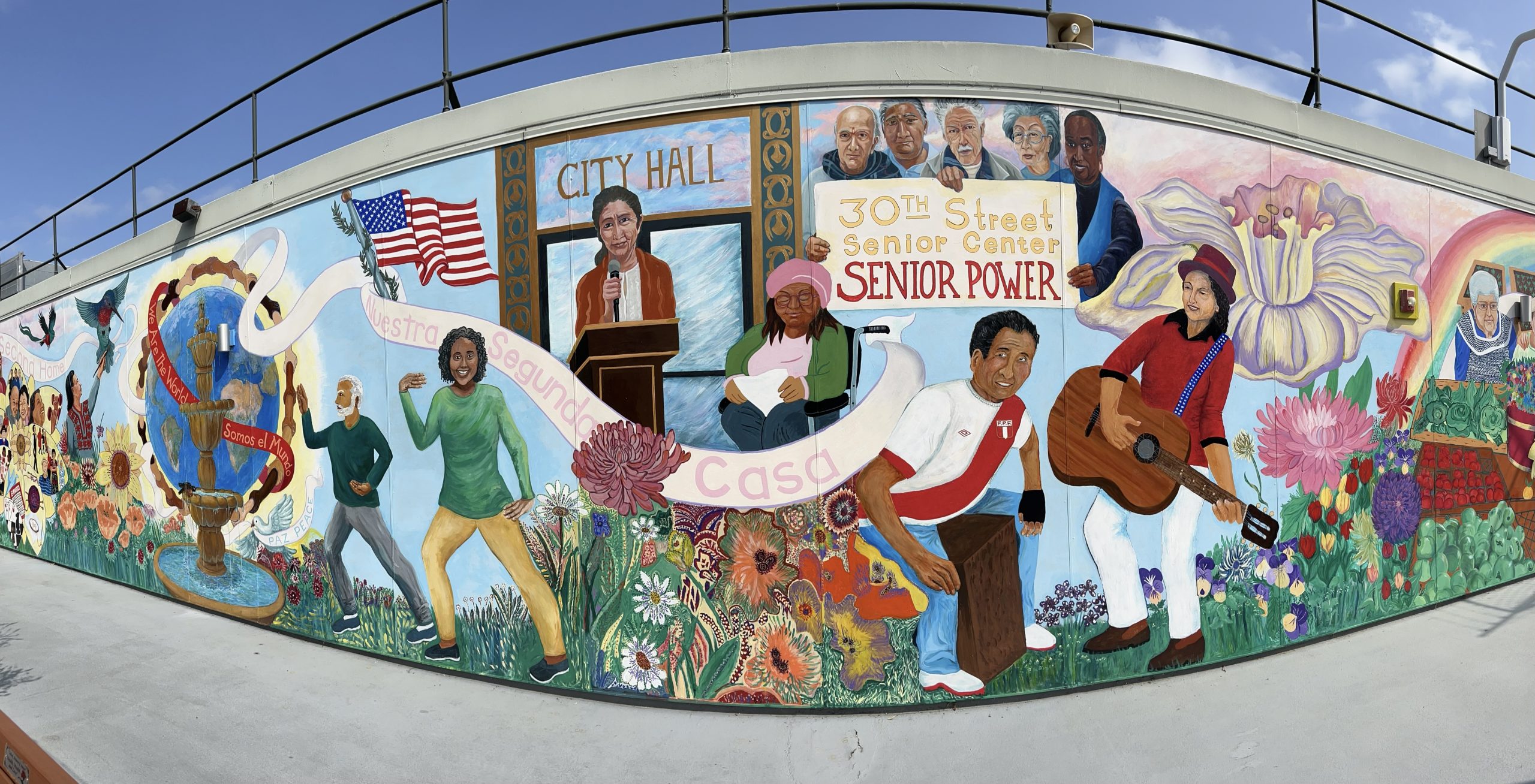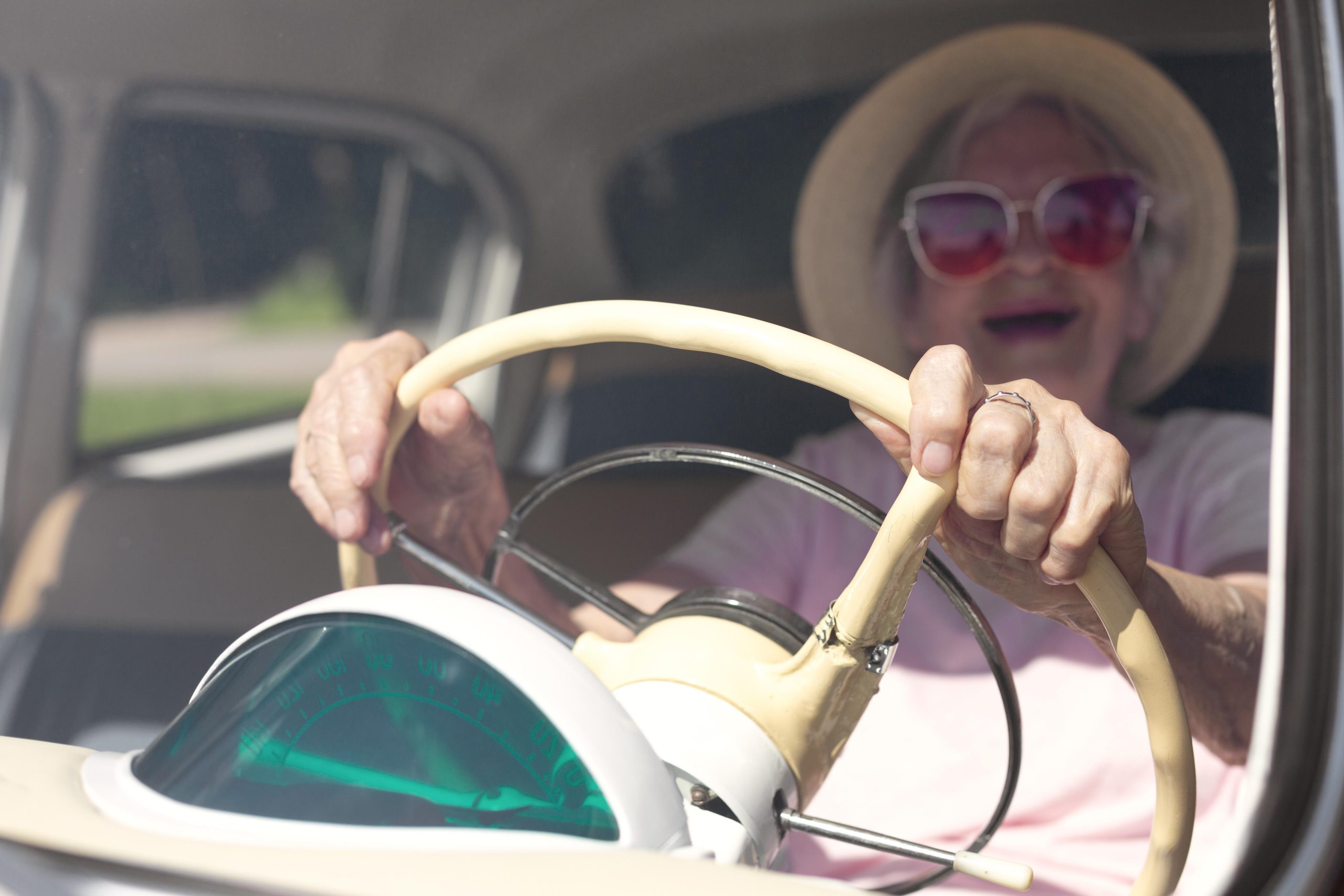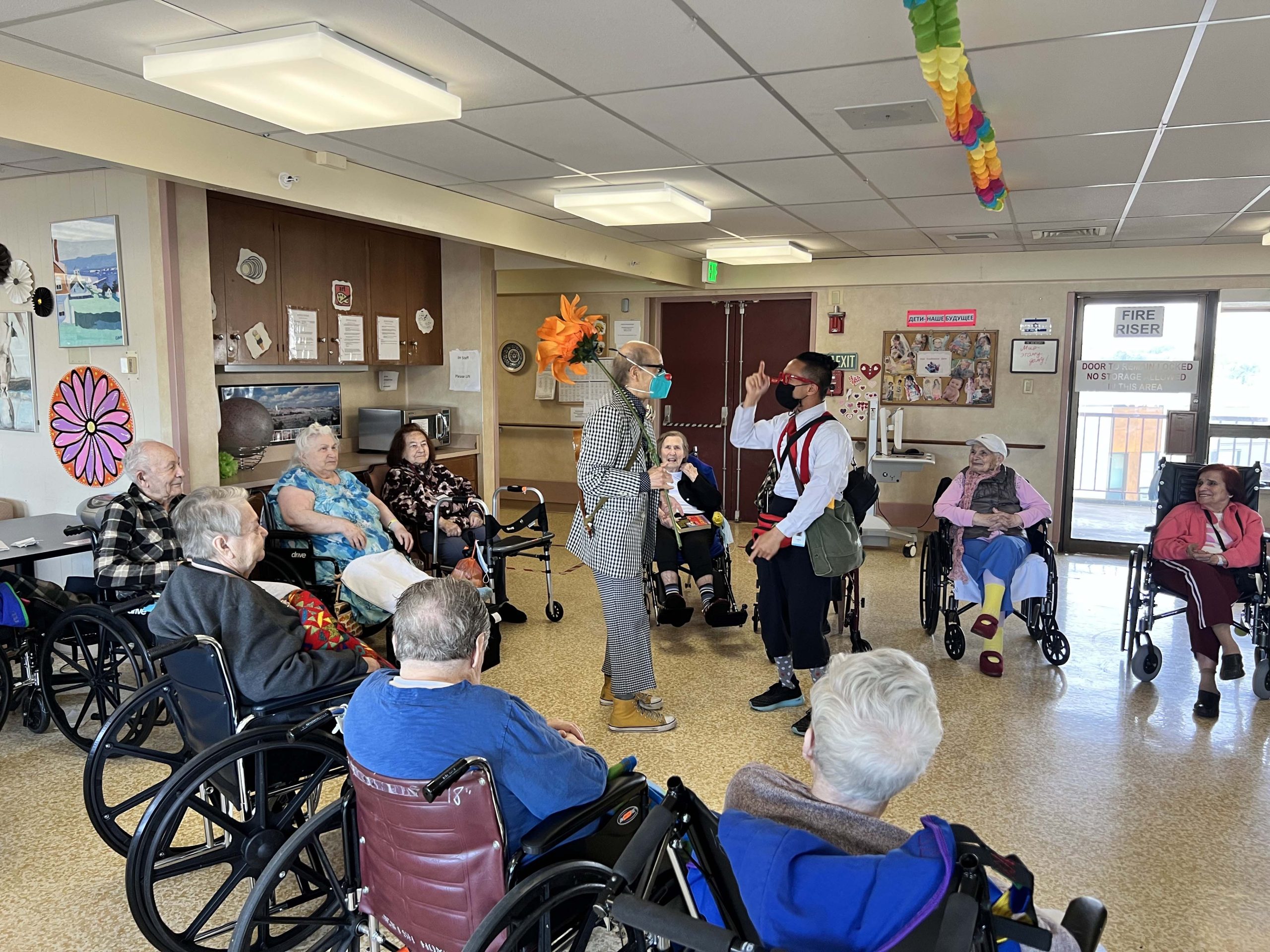Meals on Wheels a force against senior isolation, not just a food provider, CEO says

Ashley McCumber is on a mission to make San Francisco an age- and disability-friendly city.
“It’s hard to grow old in San Francisco,” said the Meals on Wheels CEO and executive director, noting “the breakdown of neighborhoods, declining community participation in clubs, low voter turnout, all the way down to the way we treat others on the street.”
Twenty years ago, when he moved here from Boston, the sense of community seemed stronger, he said. “It’s different now. The city is less hospitable for seniors. It’s harder to age in a place that feels so young. There’s a sense that technology is the answer to every problem.”
As the largest provider of nutrition and supportive services to homebound seniors in the city, Meals on Wheels bears witness to this increasingly challenging environment. Drivers interact with about 3,200 people a day, delivering groceries to those who can’t shop or cook for themselves and prepared meals to 2,500 homebound seniors.
The majority, 68 percent, are white and African American. There are somewhat more men than women. Ages range from under 60 to over 85. Nearly a quarter live on less than $990 a month, and more than half have uncertain or unsteady incomes.
More than two thirds live alone. Often, the only people they see are the Meals on Wheels delivery team. ones delivering their meals.
“Isolation is the major challenge we face as a society,” said McCumber. “No robot, no app, Alexa, Hey Google or other technology can replace human connection.”
Food opens the door
To McCumber, interaction with clients is equal in importance to the food Meals on Wheels delivers.
“Food is the key. It opens the door. When people need assistance, the first thing they accept is food,” said McCumber. Once clients begin to trust the Meals team and invite them into their lives, case workers can begin to make home visits, offer nutrition counseling, and arrange referrals to critical outside resources. Volunteers play a role, too, distributing disaster kits, helping with minor home repairs kits and sending out holiday and birthday cards.
McCumber was recently honored for his leadership on behalf of seniors and adults with disabilities. The San Francisco Community Living Campaign, a nonprofit that supports a variety of programs for that population, awarded him the 2018 Norma Satten Community Service Innovation Award. He is a co-founder of Meals on Wheels California and chairs the board of Meals on Wheels America. He is on the San Francisco LGBT Aging Policy Task Force and co-chairs the service providers working group for the Dignity Fund Coalition, which successfully lobbied to stabilize and increase annual city funding for services for seniors and the disabled.
“New money was necessary, but so was the platform – to ask, what can we do better? We have to place making San Francisco an aging- and disability-friendly city in equal importance to homelessness, mental health and substance abuse, housing, jobs, and transportation.”
This year, Meals on Wheels will make and deliver 2.2 million meals, and the growth continues at roughly 20 percent annually. “San Francisco has a hidden crisis of senior poverty,” said McCumber, who points out the statistics at every meeting he attends:
- 14 percent of seniors, and 75 percent of Meals on Wheels clients live at or under the federal poverty level of $12,140 person/year.
- 34 percent live at or under 200 percent of that level
- 57 percent of the city’s 37,000 seniors who live alone are at risk of being unable to remain in their homes.
- “The high cost of living in San Francisco has pushed more people to need assistance who probably never thought they would,” he said. “When we provide nutritious meals and daily safety checks for homebound seniors, we reduce risks associated with loneliness, depression and falls.”
It’s a team effort, a community
McCumber is reluctant to take personal credit for all that Meals on Wheels does. “If I deserve any credit, it is that I recognize that it is our team, broadly defined, that makes the mission work … that leadership is about setting a frame for all to contribute at their maximum ability.”
For McCumber, Meals on Wheels is a community – staff, volunteers, business contributors, board members and clients – his community.
He’s often the first to welcome new families to his neighborhood in the Castro District. “I say hello and let them know they can borrow a ladder or whatever else they need, and I invite them over for a drink in our backyard.”
He looks out for his workers. Many Meals on Wheels drivers juggle multiple jobs to support their families. One of the first issues he addressed was the inequity between the board’s contribution to his and his staff’s defined benefit plans. “What I get, everyone should receive.”
McCumber grew up a latchkey kid to a working poor family in North Carolina. “Both my parents worked full time. I can remember what it’s like to have $10 in your pocket for the week. I can understand what it feels like: a vat of oil on the stove, living on Texas steak fries, and mac and cheese.” His family came together only for holiday dinners. Otherwise, it was grab and eat. At 11, he took a summer job picking tobacco to pay for school clothes, and he’s worked ever since. “I know what it’s like to struggle.”
Though familiar with economic insecurity, McCumber said he “always had an unknown sense of privilege. I had a frame that the things of the world belonged to me.“ It was as president of the United South End Settlements in Boston, where he met young African-American men who did not see a future for themselves, he said, “that I understood what it is to feel excluded, to believe that some places and experiences that others enjoy are out of reach.”
The excluded in San Francisco
In San Francisco, low-income seniors are among the excluded, those ignored and forgotten by the larger community. “Meals on Wheels started like many missions, McCumber said, in the hands of a few who said ‘that just can’t be – no one should be hungry or alone’… It gained momentum with countless staff and board leaders who said, ‘I plan to leave this mission better than I found it.’”
That’s his goal, too.
“Every problem that confronts the community confronts seniors: homelessness, mental health and substance abuse, housing, jobs and transportation. It’s just that most people don’t think about seniors when we talk about the problems facing the city.“ He wants San Francisco supervisors to weigh the impact on seniors and people with disabilities in every issue they consider.
“It’s not enough for them to respond positively to our concerns. Someone has to lead. Who among the supervisors makes seniors a priority?” he said. “We’re always on the supervisors’ list, but we’re never number one or two.“
Getting seniors concerns to the front of the line is just one of the challenges he sees ahead. The other is a major fundraising campaign to replace the offices they’re outgrowing.
McCumber, who has a degree in communications and public relations, once thought of going into radio. Instead, he started his career in the nonprofit world, at the March of Dimes. Now, at Meals of Wheels, he believes he’s found his place – one where he can help “reframe aging as positive and acknowledge the struggles of aging. Our work is more important than ever.”





